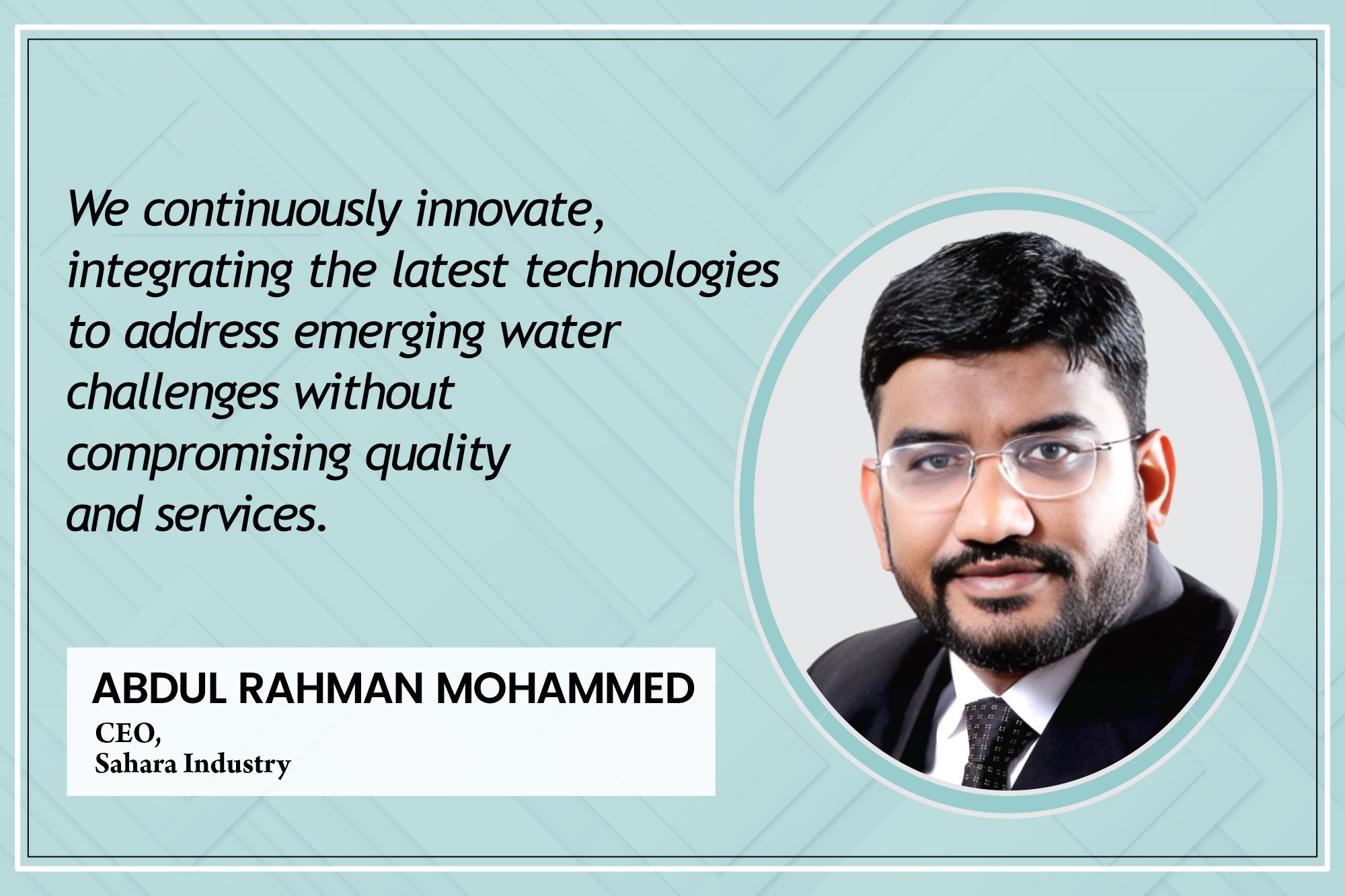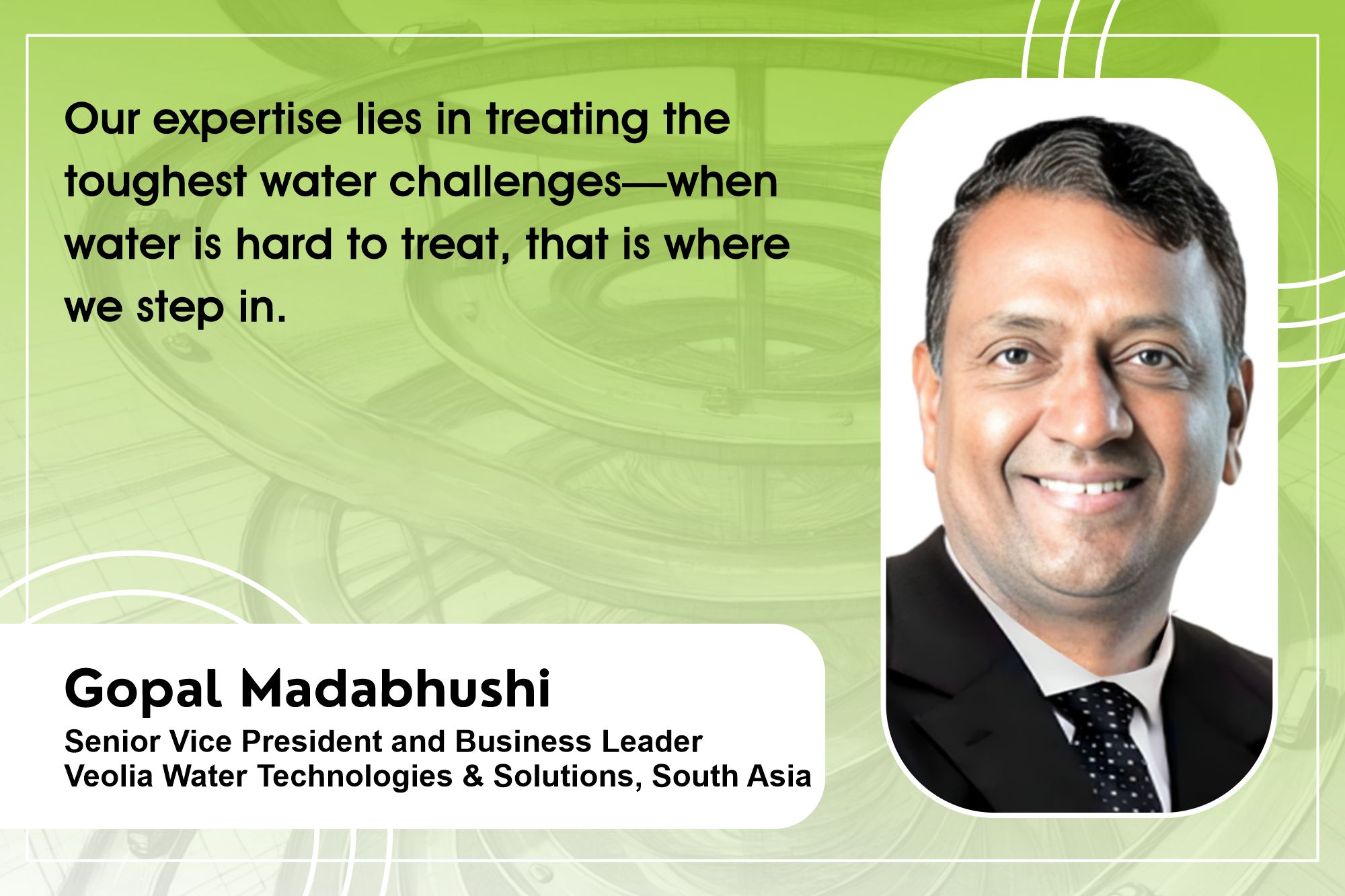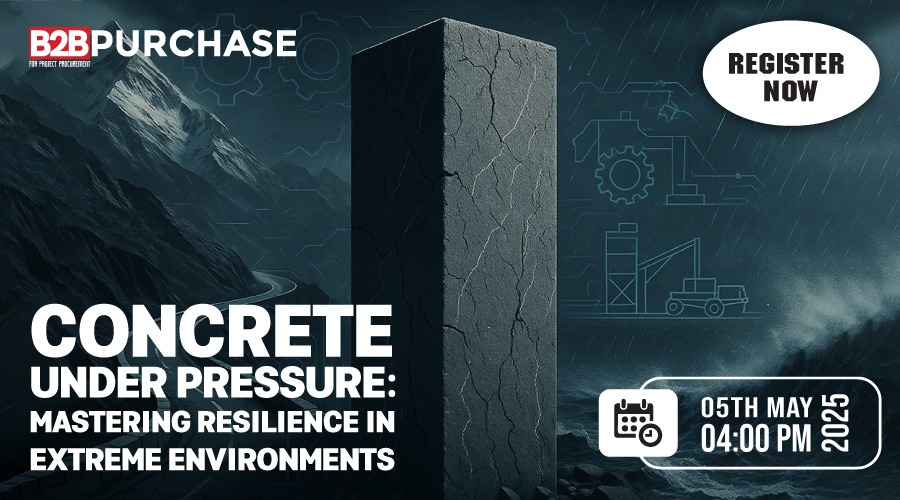Sahara way in water treatment
By Staff Report | December 27, 2024 6:08 pm SHARE

With CEO Abdul Rahman Mohammed at the helm, Sahara Industry is redefining the water treatment landscape with groundbreaking technologies. From enhanced filtration processes to advanced wastewater management, Sahara Industry innovations are setting new benchmarks for quality and sustainability.
Can you highlight the key innovations and technological advancements in your product range?
We strive to deliver lasting value to our diverse customers through continuous research and development and embracing global trends. Our commitment is reflected in our innovative, dependable, and energy-efficient products, ensuring superior quality, consistency, and value.
We continuously innovate, integrating the latest technologies to address emerging water challenges without compromising quality or services. Our advancements include enhanced membrane technology for superior filtration and durability, energy recovery systems to reduce power consumption, and smart monitoring systems for optimised performance. Our treatment systems utilise advanced multi-stage filtration (RO, UV, and electrodeionization), system feed water for dialysis plants, real-time water quality monitoring, and improved filtration processes to minimise chemical usage. We have also developed compact, portable residential or institutional systems featuring advanced filtration technology with remote monitoring facilities. In wastewater treatment, we are introducing new treatment technologies such as advanced membrane bioreactor filtration for higher-quality effluent, anaerobic digestion for biogas production, and nutrient recovery to address challenging pollutants. We are also developing an advanced system for zero liquid discharge (ZLD) to promote water reuse in industries and incorporating AI technology for predictive system maintenance.
What are some common challenges in the construction of water treatment projects and how do you address them?
Large water treatment construction projects face various challenges. One common issue is dealing with sitespecific constraints, which include unique geographical, environmental, and regulatory conditions. Securing nodal clearances for land acquisition and obtaining approvals from environmental and local agencies can take longer than anticipated, delaying project initiation. Adhering to national and international water treatment standards is paramount, but balancing effective treatment technology with energy efficiency measures within the allocated budget can be challenging.
Another hurdle is designing and constructing new treatment systems that integrate seamlessly with existing infrastructure, especially when temporary treatment solutions are needed during transitions in critical infrastructure. Finding qualified and experienced engineers and a skilled workforce for the construction and operation of complex water treatment facilities in remote locations is a significant challenge for developers.
Moreover, minimising the ecological footprint of construction projects is a major concern. Selecting and implementing sustainable construction practices, using eco-friendly materials, and designing systems that reduce waste and chemical usage are essential yet challenging tasks. Another key concern is ensuring that the treatment systems remain effective and efficient over their lifespan despite evolving technology and changing water quality.
Constructing water treatment projects in areas prone to hostile weather conditions, such as floods or droughts, adds another layer of complexity. However, through meticulous planning, robust design, an experienced team of expert project engineers, top-quality filtration plants, and advanced resilient systems, Sahara Industry is well-equipped to tackle these challenges effectively.
How does Sahara Industry incorporate advanced filtration technologies in its water treatment solutions?
Sahara Industry incorporates advanced filtration technologies in its water treatment solutions by integrating cutting-edge membrane technologies and multi-stage filtration processes. Our systems utilise high-performance membranes, such as those designed for RO (Reverse Osmosis) and UltraPure water systems, to effectively remove contaminants, including pharmaceuticals, microplastics, and other emerging pollutants.

We also employ advanced oxidation processes and specialised adsorption technologies to enhance the removal of challenging contaminants. Our solutions optimise water quality by combining these technologies with real-time monitoring and smart control systems while minimising chemical usage and energy consumption. Many of our products are ANSI/NSF certified, reflecting our commitment to meeting rigorous quality standards. This approach ensures that our water treatment systems deliver reliable, efficient, and sustainable performance, even in the most demanding environments.
Can you provide examples of how your solutions have contributed to environmental preservation and resource optimisation in recent projects?
In one particular project, the client aimed to reduce the environmental impact of their operations while addressing water treatment challenges. The client company relied on municipal water supply and groundwater sources for operational and drinking water needs. However, the groundwater had a hardness level of over 1,400 PPM and a TDS of 2,300 PPM, making it unsuitable for drinking. The client sought a solution to make the groundwater potable while reducing reliance on the more expensive municipal water supply.
After conducting a detailed project analysis, Sahara Industry provided a customised and innovative solution that delivered a substantial return on investment to the client. Following thorough research and consultation with the end user, the solution included a high-grade water softener with NSF Certified Pressure Vessels. These vessels can withstand 250,000 cycles from 10 psi to 150 psi pressure, featuring a seamless high-density polyethene liner and leak-free engineered polymer inlet that are 100 percent corrosion-resistant and require minimal maintenance.
The new water treatment system not only extended the lifespan of the existing infrastructure but also significantly improved water quality, reduced wastage, and contributed to the conservation of precious water resources. By incorporating advanced filtration technologies and optimising the treatment process, the system ensured more efficient water use, minimised environmental impact, and delivered long-term sustainability.
What performance metrics or benchmarks does Sahara Industry use to evaluate the effectiveness of its STP and ETP systems?
Sahara Industry employs a comprehensive set of performance metrics and benchmarks to evaluate its water and wastewater treatment systems, aligning with industry standards. These evaluations typically focus on several key areas to ensure optimal performance and compliance with regulatory requirements.
The primary metric for any water treatment system is removal efficiency, particularly for key parameters like Biochemical Oxygen Demand (BOD), Chemical Oxygen Demand (COD), and Total Suspended Solids (TSS). For STPs, nutrient removal efficiency, especially for nitrogen and phosphorus, is crucial. Effluent quality is assessed through measurements of pH, dissolved oxygen, turbidity, and faecal coliform counts, ensuring the treated water meets the prescribed discharge standards.
Operational performance is gauged by treatment capacity metrics such as volumetric flow rate and retention times. Energy efficiency is increasingly important, with power consumption per cubic meter of treated water being a key indicator. Sahara Industry places significant emphasis on operational stability, tracking uptime percentages and the frequency of maintenance interventions. Compliance with local and national regulatory standards is non-negotiable and forms a critical benchmark for system efficiency. Cost-effectiveness is another crucial aspect, evaluated through operating costs per unit volume of treated water and life-cycle cost analyses. Environmental impact considerations include carbon emission assessments, effectiveness of odour control, and system noise levels.
Given the growing concern about water scarcity, the potential for water reuse is a key performance indicator, measuring the quality of treated water suitable for recycling. For ETPs, in particular, the ability to remove specific industrial pollutants and emerging contaminants like pharmaceuticals and microplastics is closely monitored. Sahara Industry further enhances additional benchmarks tailored to the specific needs of the customers and the required performance standards.
What are the upcoming trends and innovations in water treatment that you notice?
The water treatment industry is undergoing significant transformation, driven by key smart water management and distribution trends. Technologies like IoT, AI, and data analytics lead the way, enabling real-time monitoring and predictive maintenance. At Sahara Industry, we are closely studying these emerging trends and innovations and incorporating them into our offerings as a forward-thinking company.
We are integrating UV-LED technology to provide more cost-effective disinfection solutions on a larger scale. We focus on developing more efficient and durable membranes, advanced oxidation processes to tackle emerging contaminants, and reducing chemical usage while enhancing energy efficiency across all our products and solutions.
We also create integrated treatment systems for municipal and industrial wastewater, emphasising resource recovery and reuse. Our goal is to develop compact systems that achieve energy-neutral water treatment. As water scarcity becomes an increasing concern, water reuse and zero liquid discharge technologies are critical, and Sahara Industry is actively advancing its capabilities in these areas.
Cookie Consent
We use cookies to personalize your experience. By continuing to visit this website you agree to our Terms & Conditions, Privacy Policy and Cookie Policy.




































-20240213125207.png)

























